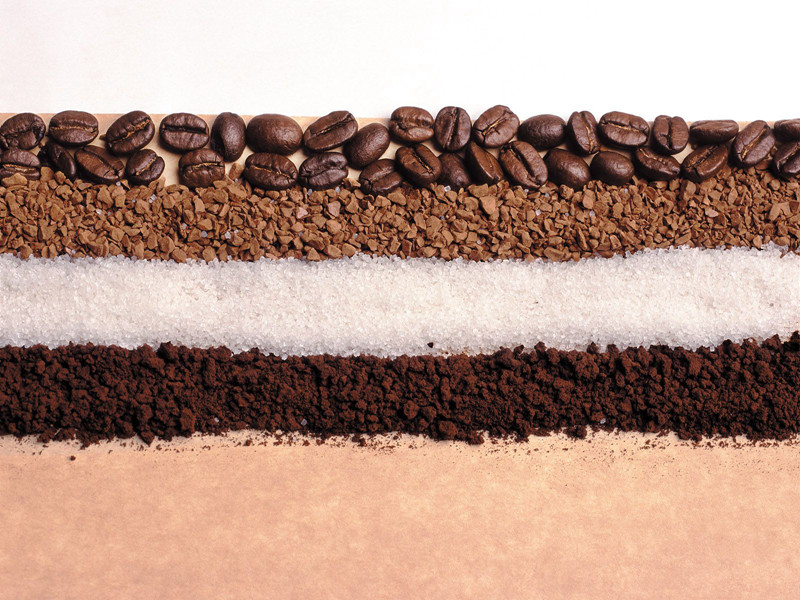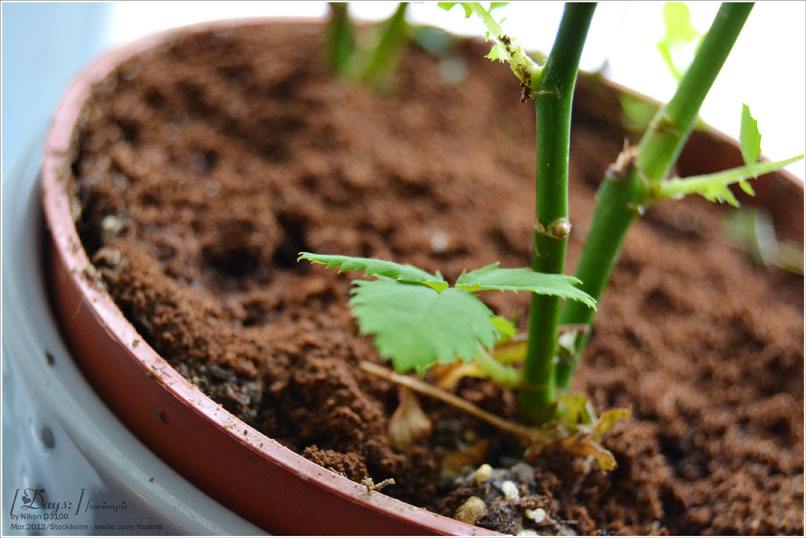Ingredients in coffee beans Ingredients in green coffee beans Caffeine Coffee oils Tannins Coffee aroma
Tannin: after extraction, tannin will turn into a yellowish powder, which can easily blend into water. After boiling, it will decompose and produce pyrosylic acid, which will make the coffee taste worse. If it is brewed and put for several hours, the color of the coffee will become stronger than when it was just soaked, and it is not tasty enough, so it is said that it is best to finish it as soon as possible.
Fat: the fat contained in coffee plays a very important role in flavor. It is found that there are many kinds of fat in coffee, the most important of which are acidic fat and volatile fat. Acidic fat means that there is acid in fat, and its strength varies with different types of coffee, and volatile fat is the main source of coffee aroma. Once the fat in roasted coffee beans comes into contact with the air, it will change chemically and the taste will get worse.
Protein: the main source of calorie is protein, and like dripping coffee, most of the protein will not dissolve, so no matter how much coffee you drink, the nutrition you get is limited, which is why coffee will become a dieter's sacred food.
Sugar: without sugar, you will not only feel the bitterness of caffeine and the sour taste of tannin, but also feel sweet, which is caused by the sugar contained in the coffee itself. After baking, most of the sugar will be converted to caramel, bringing a unique brown to the coffee.
Caffeine: the most bitter taste in coffee flavor is caused by caffeine. Caffeine is the most eye-catching of all the ingredients of coffee. It is a kind of phytoxanthin (animal muscle component). It has the same properties as theobromine contained in cocoa, green tea contains the same theophylline, and the percentage of reduction after baking is very small. Caffeine has a very extensive effect. It will affect the brain, heart, blood vessels, gastrointestinal tract, muscles and kidneys and other parts of the body. In addition to this, because it also promotes the kidney function to help the body expel excess sodium ions (chemicals that hinder the metabolism of water molecules), caffeine will not accumulate in the body like other narcotic and excitant substances (narcotic drugs, paint solvents, stimulants, etc.) and will be excreted in about two hours. An appropriate amount of caffeine will stimulate the cerebral cortex, promote sensory judgment, memory and emotional activities, make the myocardial function more active, dilate blood vessels and enhance blood circulation, and improve metabolic function. Caffeine can also reduce muscle fatigue and promote digestive juice secretion.
Minerals: there are lime, iron, sulfur, sodium carbonate, phosphorus, chlorine, silicon and so on, because the proportion of very little affect the flavor of coffee is not big, combined to bring only a little astringent taste.

Crude fiber: raw bean fiber will be carbonized after baking, this carbon and sugar caramelization combine with each other to form the tone of coffee, but the fiber turned into powder will have a considerable impact on the flavor of coffee. Therefore, we do not encourage the purchase of powdered coffee beans, because we are unable to taste the flavor of the coffee. The bitterness of coffee, the color, aroma and taste of coffee are caused by some complex chemical changes that take place in the roasting process. Therefore, raw beans must go through appropriate chemical procedures to achieve the most balanced state of its essential ingredients in order to be regarded as the best baked beans. The aroma of coffee changes with the heat, so the baking time should be shortened as much as possible, and the heat should be controlled at the lowest temperature that can produce effective chemical composition of coffee beans, that is, the time and heat of the shortest process, so that coffee beans can produce the most suitable composition ratio.
Aroma: aroma is the life of coffee quality, and it can best show the climate, elevation, variety, refined treatment, harvest, storage, roasting technology of the coffee production process and roasting technology, etc. are the conditions to control the aroma of coffee beans. The results of gas chromatographic analysis showed that the aroma of coffee was composed of acid, alcohol, acetaldehyde, ketone, ester, sulfur compound, phenol, nitrogen compound and nearly hundreds of volatile components. Generally speaking, fat, protein and sugars are important sources of aroma, while lipids blend with the sour and bitter of coffee to form a smooth taste. Therefore, the disappearance of fragrance means that the quality is getting worse, and the relationship between aroma and quality is very close.
Important Notice :
前街咖啡 FrontStreet Coffee has moved to new addredd:
FrontStreet Coffee Address: 315,Donghua East Road,GuangZhou
Tel:020 38364473
- Prev

For the use of coffee grounds, how to grow flowers with coffee? How to make Coffee residue Fertilizer
For the use of coffee grounds, for flower lovers, flower cultivation is the most suitable, but for coffee grounds flower lovers have tried but failed, so how to make coffee grounds fertilizer can be absorbed by plants? First, let's look at the benefits of coffee grounds fertilizer: coffee grounds contain a lot of nitride, which is very suitable for plants that like acidic soil, so coffee grounds are used as fertilizer.
- Next

Panamanian Jade Manor Sun auction Rosa Coffee second batch Flavor, taste and aroma description
Professional barista communication please follow coffee workshop (Wechat official account cafe_style) ■ country: Panama ■ Manor: Esmeralda Jade Manor ■ production area: Bockett ■ Variety: Geisha ■ treatment: sun ■ Harvest time: 2015 arrival Cup Test report: Jadeite Manor has always been a myth in the world of coffee, its position in the coffee world is like the wine world
Related
- Detailed explanation of Jadeite planting Land in Panamanian Jadeite Manor introduction to the grading system of Jadeite competitive bidding, Red bid, Green bid and Rose Summer
- Story of Coffee planting in Brenka region of Costa Rica Stonehenge Manor anaerobic heavy honey treatment of flavor mouth
- What's on the barrel of Blue Mountain Coffee beans?
- Can American coffee also pull flowers? How to use hot American style to pull out a good-looking pattern?
- Can you make a cold extract with coffee beans? What is the right proportion for cold-extracted coffee formula?
- Indonesian PWN Gold Mandrine Coffee Origin Features Flavor How to Chong? Mandolin coffee is American.
- A brief introduction to the flavor characteristics of Brazilian yellow bourbon coffee beans
- What is the effect of different water quality on the flavor of cold-extracted coffee? What kind of water is best for brewing coffee?
- Why do you think of Rose Summer whenever you mention Panamanian coffee?
- Introduction to the characteristics of authentic blue mountain coffee bean producing areas? What is the CIB Coffee Authority in Jamaica?

